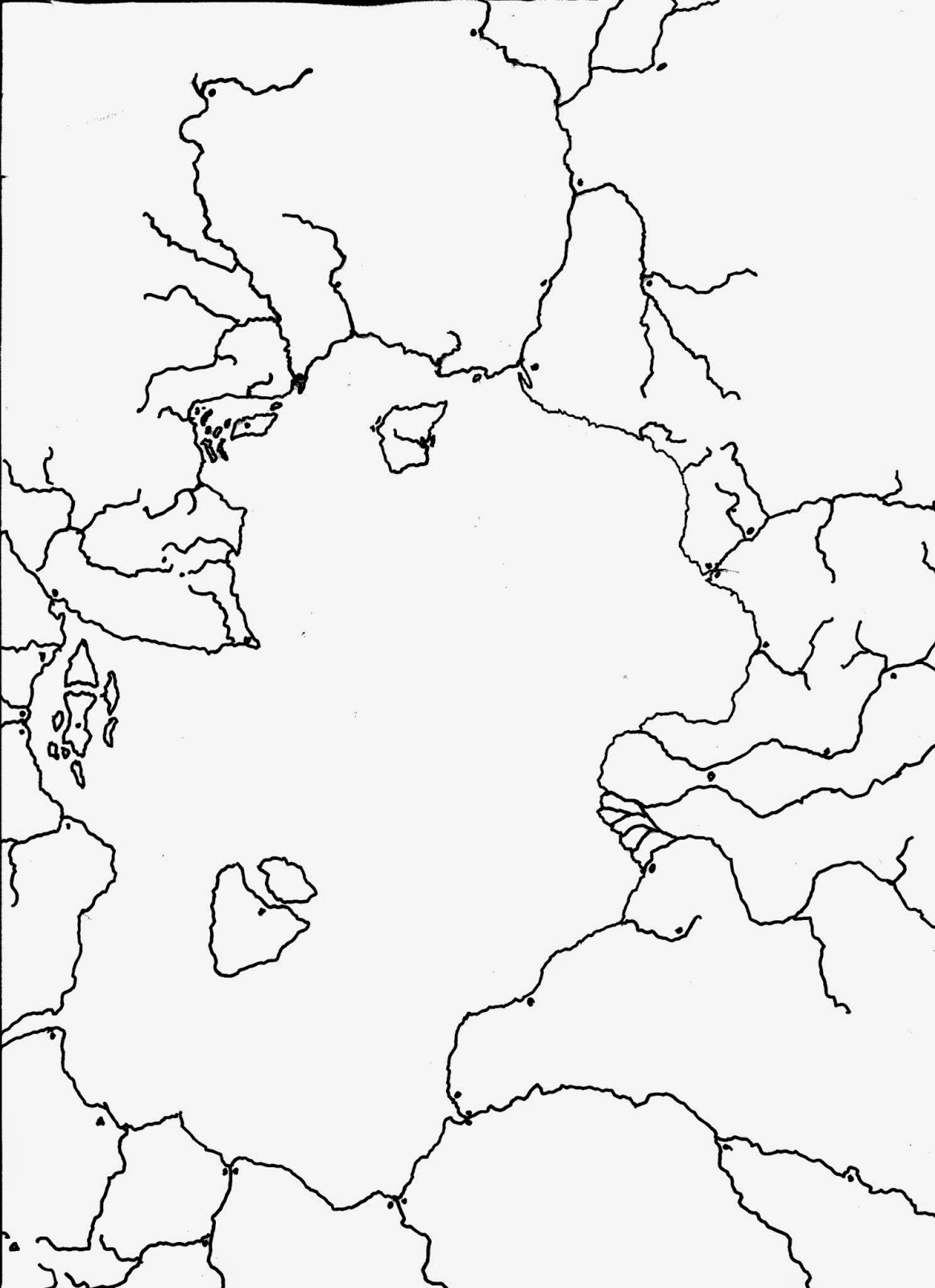Outline map of Mídhris
I spoke a little last night of voyages and homecoming, of the protagonists of my fiction and myself. There are a few more thoughts to share on this theme.
Ian Dyrnedon, aka Darkslayer, is torn from his home in Yorkshire and never returns to earth. He and most of his companions, who became known as the Light Bearers, are so changed by their experience that they are touched by a restlessness. (Spoiler alert: I am about to share something that happens in the fourth book, as yet unwritten.) They end up migrating from the Forest of Norrast southward to Wolmsley Wood, which is central in later tales. Ian is forced by circumstances to make his home among the people who took him in and to join other migrants in creating yet another home in new territory.
Grevedan Deveril, my alter ego and the fictional redactor of the entire series, crosses between worlds and spends years in Mídhris before crossing back to earth. As with all the characters in the series, he has no control over this "slipping between dimensions." There are locations where it is more likely to happen and individuals to whom it is more likely to happen but nobody wills it into occurring. Grev thrives in Mídhris as a scholar and historian and has a great love affair there. It is doubtful he would have returned to earth if left to his own devices. If he could return, he would but once he finds himself back in Central California there is no chance of seeing Mídhris again. All he has left is his own memory of it (mercifully a photographic memory) and family stories.
A sketch of Grev's arms from the early 1970s
I chuckle as I look at Grev's coat of arms. From his mother he derives the honorary title and the great oak tree (there go my trees again!) and from his father the flaming sword expressive of the cherubim guarding Eden and Matt's role in the Great Fire. A home among the trees (my "treehouse" among the alders in Hercules?). Exile and unspeakable loss. The crest of the earthly line of Wolmsley is a blossom of Hermann's Peace, a magical flower with its own tale to tell, a tale of reconciliation and healing. The motto is from Hosea 14.7: "They that dwell under his shadow shall return" (Authorized Version). That theme is taken from the story of St Mirksel the Healer, of exiles returning to the land.
Looking at this fictional series as a reflection on myself is a fascinating exercise. There is a magical parallel world that may echo my ability to dissociate from my present circumstances. There is loss of family and fostering in an alien society that may echo my being adopted. The personal and psychological displacement of characters in the tales is immense and often irrevocable. Narrative tension and storytelling adventure dictate restlessness and many journeys and what does this say about me?
A factor in writing this fantasy series that I find fascinating is how much of the storyline arises from my attempting to answer questions. The family trees that I have developed are treated as fixed historical data to which I almost never make changes, though I keep adding to them. I ask myself what becomes of Ian's descendants. Where do they scatter? Whom do they marry? How does the bloodline run from Ian all the way to Grev? If Ian finds himself in Norrast, why do we encounter his family in the Isenwild and Wolmsley Wood centuries later? What happens to the earthly line of the Dyrnedon family and how do the Mithron and Terran lines cross and mingle? It is akin to solving a multidimensional puzzle.
It is usually only after spinning out a narrative that I can look back and see what I have just revealed (even if cryptically) about myself. It is interesting as I go through this current exercise. Looking at various segments of my life I do see the continuing threads that weave it all together. That helps make sense of the journey and of myself.
One could also say that the psychological exploration that I am doing now is really groundwork for returning to the series. I yearn for a "ritorno" (return, homecoming) to writing this fictional opus.
Home is where one starts from. As we grow older
the world becomes stranger, the pattern more complicated
Of dead and living. Not the intense moment
Isolated, with no before and after,
But a lifetime burning in every moment
And not the lifetime of one man only
But of old stones that cannot be deciphered.
There is a time for the evening under starlight,
A time for the evening under lamplight
(The evening with the photograph album).
Love is most nearly itself
When here and now cease to matter.
Old men ought to be explorers
Here or there does not matter
We must be still and still moving
Into another intensity
For a further union, a deeper communion
Through the dark cold and the empty desolation,
The wave cry, the wind cry, the vast waters
Of the petrel and the porpoise. In my end is my beginning.
- T. S. Eliot, "East Coker," Four Quartets
--the BB



No comments:
Post a Comment